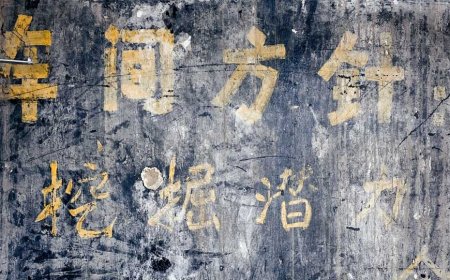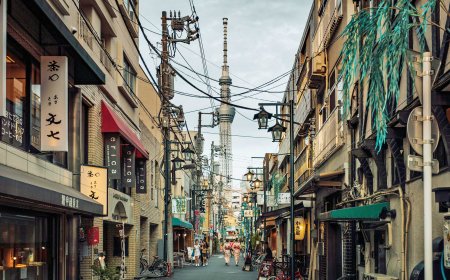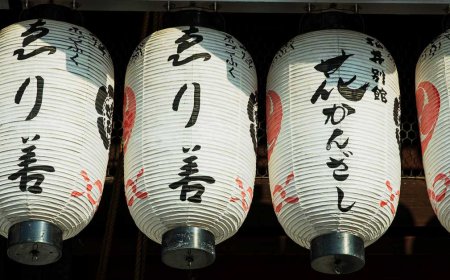Wasei-eigo: Japanese-Made English Words
The linguistic blend in the Japanese language called Wasei-eigo, where Japanese intricately weaves Foreign terms into its language, reflecting a unique fusion of creativity and adaptability.
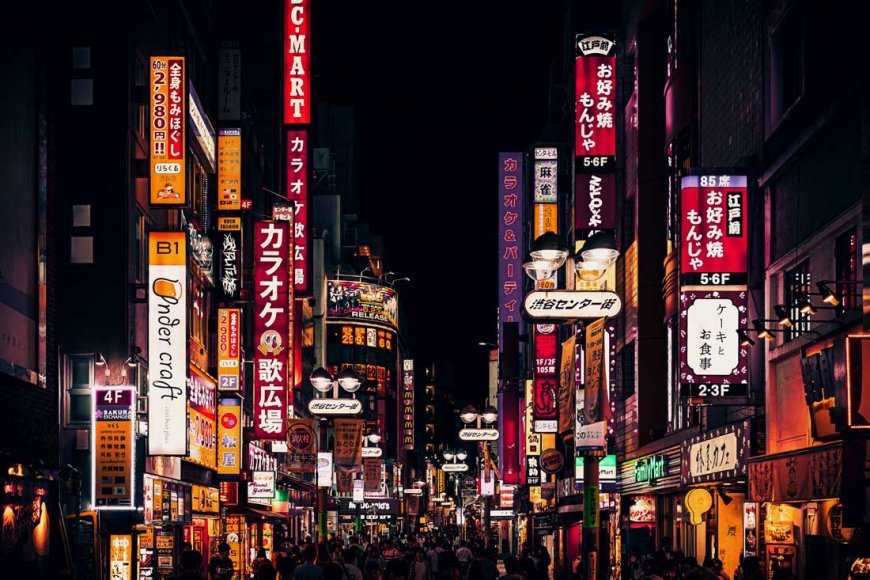
The Fusion of Japanese Creativity and Influence from Abroad
In the diverse and dynamic landscape of the Japanese language, you might come across words that sound remarkably English, yet are used quite differently from their original meanings. These words, known as "wasei-eigo" (和製英語), literally meaning "Japanese-made English," add a unique touch to daily conversations in Japan. While they may initially sound familiar, their meanings and uses can be quite distinct from what you'd expect.
 "ジーパン" (Jīpan) is a term that describes jeans. It combines the pronunciation of the English word "jeans" and "pants"
"ジーパン" (Jīpan) is a term that describes jeans. It combines the pronunciation of the English word "jeans" and "pants"
サラリーマン (Sararīman)
One of the most commonly heard wasei-eigo words is "サラリーマン" or "salaryman." While this term might remind you of corporate professionals around the world, in Japan, it refers to a specific type of white-collar worker. Japanese salarymen are typically male employees who work long hours and are often associated with the corporate culture of strict hierarchies and company loyalty. This word is a unique Japanese take on the English "salary man" and reflects the distinct work culture of Japan.
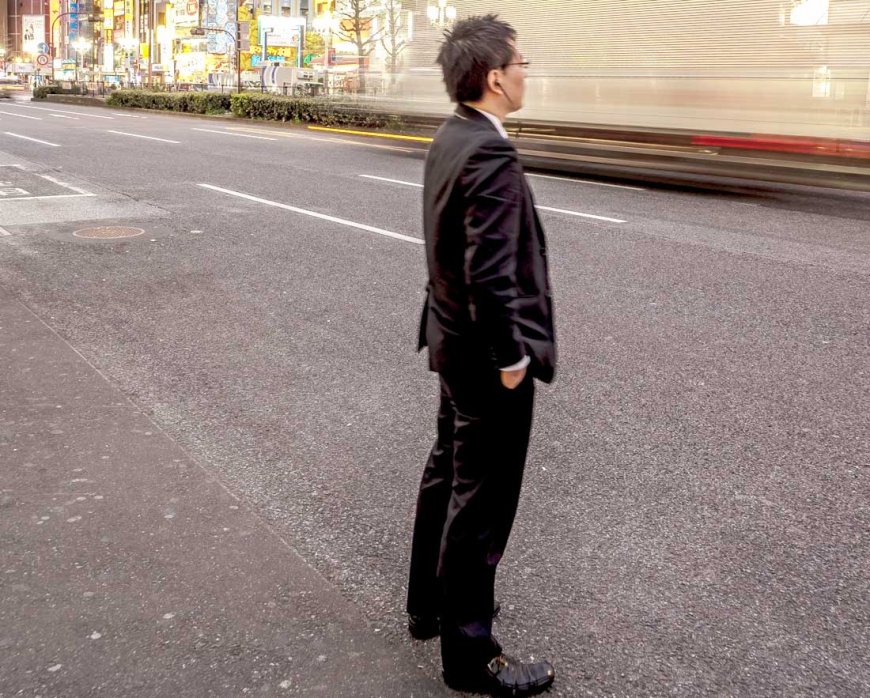
マンション (Manshon)
In English, a "mansion" is often associated with a large, luxurious residence. However, in Japan, a "マンション" (mansion) is a multi-unit apartment building, which is quite different from the extravagant homes that the English term implies. These apartment buildings can range from modest to upscale, making this wasei-eigo word somewhat misleading for English speakers.

バイキング (Baikingu)
The term "Baikingu" in Japanese refers to a buffet-style meal, particularly in restaurants or hotels, where patrons can enjoy a wide array of dishes for a fixed price. Originating from the English word "Viking," this term became popular in Japan in the 1960s when the buffet style of dining gained prominence in the country.
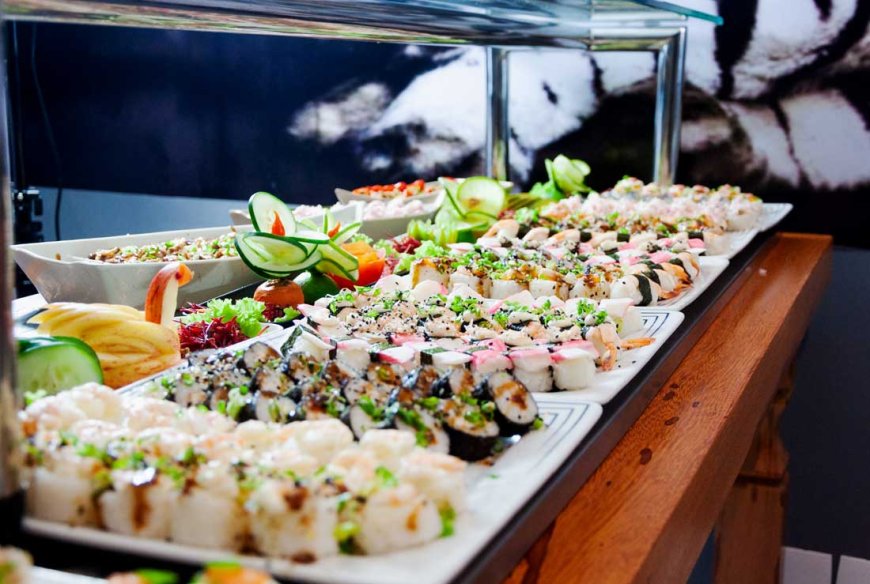
ワンピース (Wanpīsu)
Derived from the English word "one-piece," this term in Japanese is used to describe a one-piece dress or garment. It has also gained prominence due to its association with the popular Japanese manga and anime series, "One Piece," which has garnered a massive fan following worldwide.

パンツ (Pantsu)
In Japan, "パンツ" (pants) doesn't refer to trousers as in English but rather means underwear. So, when someone in Japan talks about buying "パンツ," they're not shopping for a new pair of jeans but rather underwear.

アルバイト (Arubaito)
アルバイト (arubaito) is a shortened form of the English word "part-time." In Japan, it's often used to refer to part-time jobs, a common employment option for students, young adults, and even some retirees.

コンビニ (Konbini)
"コンビニ" (konbini) is short for "convenience store," a concept familiar to many around the world. Japanese convenience stores are known for their 24/7 availability, a wide range of products, and, of course, delicious snacks. The word "konbini" is a perfect example of wasei-eigo adapting English words to fit the Japanese context.

プリクラ (Purikura)
"プリクラ" (purikura) is a fusion of "print club," and it's a popular form of photo sticker booth. These machines allow people to take photos and then decorate and print them as stickers. While "print club" in English may not immediately bring to mind these playful photo booths, the word "purikura" has become a common term for them in Japan.
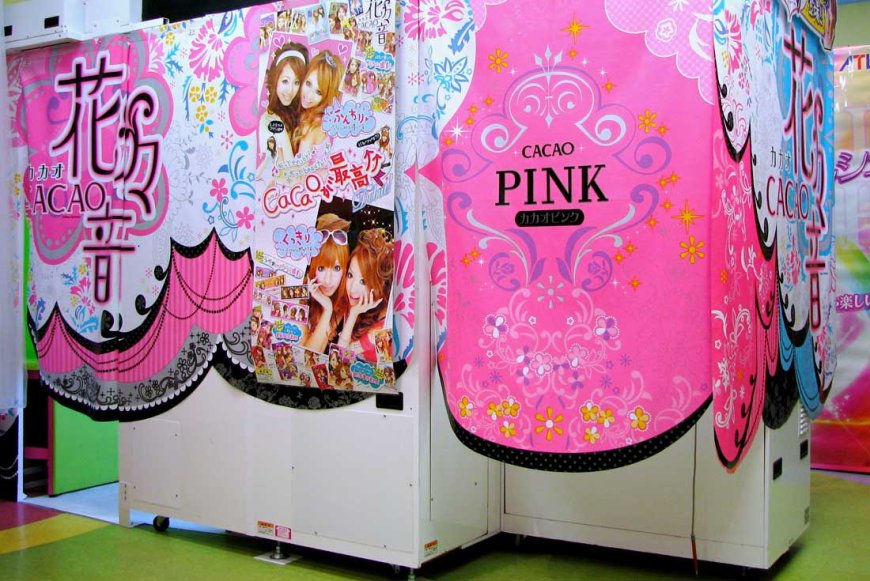
ビジネスホテル (Bijinesu Hoteru)
A "ビジネスホテル" (business hotel) in Japan is not what you might expect if you're used to Western hotels. These establishments cater primarily to business travelers, offering more affordable and compact accommodations compared to traditional hotels. The term "business hotel" was borrowed from English, but its usage has been tailored to the specific needs of Japanese travelers.

リーダー (Rīdā)
"リーダー" (leader) is used in Japan to refer to someone who takes charge or organizes activities. While the word "leader" in English can have a broader application, in Japanese, it often relates to individuals who lead group activities, whether in school, work, or a social context.

The Origin of Wasei-Eigo
Wasei-eigo is a linguistic phenomenon that has developed over time due to Japan's unique historical and cultural context. It can be attributed to Japan's long-standing relationship with Western countries, especially the United States. After Japan opened its doors to the world in the late 19th century, it began absorbing and adapting aspects of Western culture, including the English language.
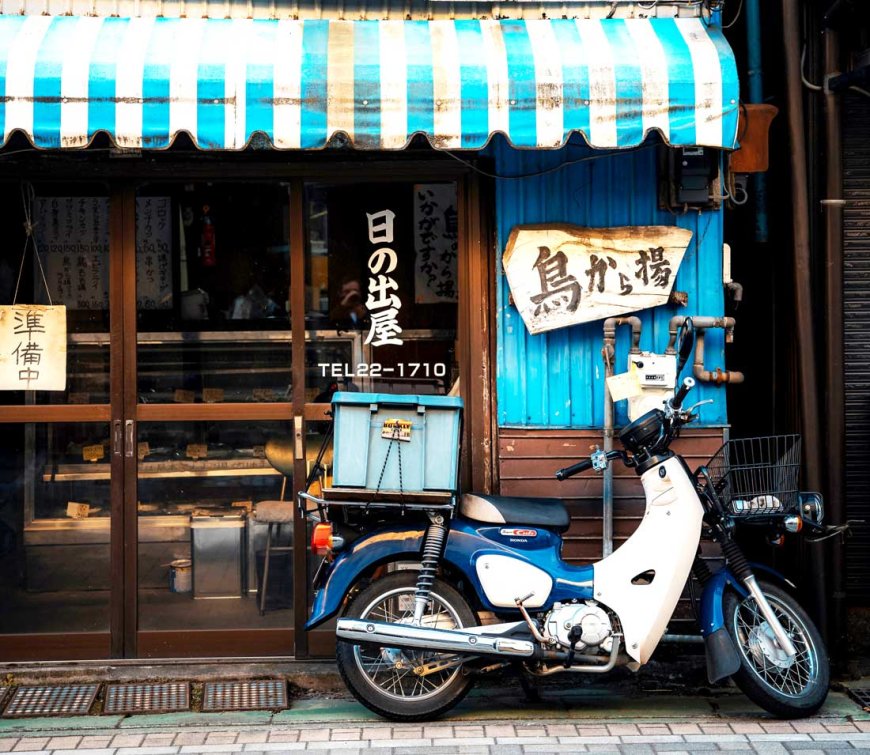 "モーターバイク" (mōtābaiku), referring to a motorcycle is derived from "motorbike" in English
"モーターバイク" (mōtābaiku), referring to a motorcycle is derived from "motorbike" in English
Wasei-eigo emerged as Japanese speakers tried to incorporate English words into their language, often with their own interpretations and meanings. This was influenced by both linguistic and cultural factors. It's important to note that wasei-eigo is not just about taking English words and using them in a Japanese context. It often involves altering the pronunciation and meaning of English words to suit the linguistic and cultural nuances of Japan.
 パン "pan", a wasei-eigo meaning bread
パン "pan", a wasei-eigo meaning bread
Wasei-eigo adds a fascinating layer to the rich tapestry of the Japanese language. It showcases the adaptability and ingenuity of language, as it evolves and integrates foreign words to meet local needs. While these Japanese-made English words might initially cause some confusion, they reflect the distinct cultural context in which they've developed.
As you navigate your way through the Japanese language, be prepared to encounter wasei-eigo that may not quite mean what you expect but are nonetheless a testament to the ever-evolving nature of the Japanese language and culture.
Find Cheap Flight Tickets to any Destinations in Japan and the Philippines
Nipino.com is committed to providing you with accurate and genuine content. Let us know your opinion by clicking HERE.



















































